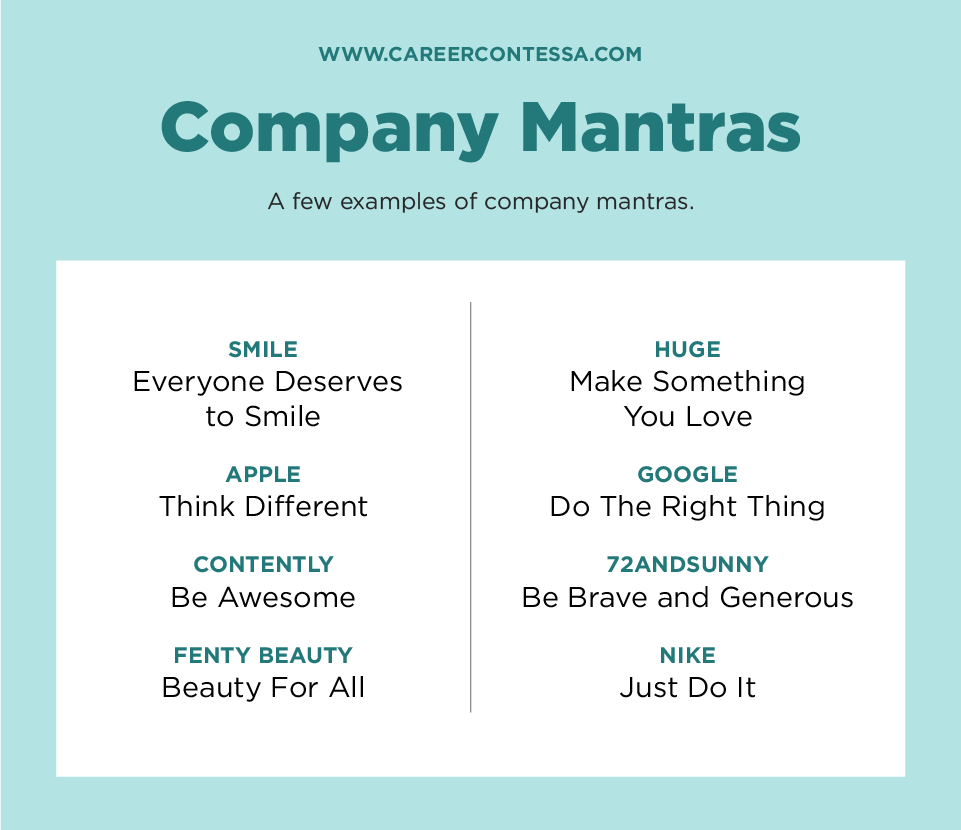Mantras aren't just for life coaches or yogis. Here’s how to write one that will keep your career on track.
Pardon our interruption—this is Career Contessa. Join us for this episode of The Femails where we talk about attaching yourself (and your own mantra) to a purpose—not a job title.
Maybe because I happen to share a first name with Eddie's character, every time I hear the word "mantra," I think of that scene—and a little part of me squirms. To me, a personal mantra has always sounded life coachy, cheesy, even cultish. When I imagine the sorts of people who have one, I don't think of creative, interesting women—I think of strangely ageless dudes who do a lot of yoga in white linen.
So let me clarify: under no accounts am I about to ask you to write a personal mantra. No judgment if you want one, just maybe do it on your own time. Instead, I'm suggesting you create a career mantra for yourself.
It just takes three simple steps—no yoga or weird voodoo rituals necessary.
Step 1: Start Thinking Of Yourself As A Brand
Just like Apple and Coca-Cola, you are your own brand. (After all, that's where the term "
personal branding" comes from). If that sounds inauthentic or salesy, consider this: every time you write a cover letter or sit down for an interview, you're selling your skills, services, and personal qualities.
So before writing your career mantra, you're going to need to start thinking like a marketer and of yourself as the product. While it may be easier for a graphic designer to think of herself as a one-woman company or "brand," this perspective isn't limited to an elite crowd of creatives. You too can be your own brand, even if your ultimate goal is to work in finance.
Step 2: Learn What A Company Mantra Is
Every brand relies on a mantra to express their core values and guide their big-picture decisions. Think of Federal Express' "Peace of mind," Apple's "Think different" or Contently's "Be awesome." (A good rule for work and life, really.)
Since we've now established you are also a brand, you'll need your own mantra. But first, let's break down what a company mantra is—and what it's
not. Step back from any stereotypes you might have in mind. It's
not a yogi mantra or self-help slogan. And it's not a mission statement.
According to Guy Kawasaki, those run long (often unnecessarily so), whereas "a mantra is 3-4 words long. Tops." Given that he was the guy behind the marketing for the original iMac, we'll take his word for it.
A career mantra should sum up your core values quickly and memorably. But it's not just a pithy phrase, it's an actionable statement that you can
always refer back to whenever you're considering a new direction.
For a heavier breakdown of brand mantras, try
this,
this, or
this. But really, it's pretty simple. A mantra defines a company's values and goals in a single breath. Your career mantra shouldn't make you think. It should make you
feel.

Step 3: Create Your Own Career Mantra
Your turn! Now that we've established that you're a brand and defined what a brand mantra is, it's time for us to discuss how to actually write one for yourself, the best brand of all.
1. Consider Your Values
What are your biggest strengths, and what do you value you most about your work? Your organization? Your integrity? Your innovation? Use those qualities to make a list of power words that you associate with yourself and how you'd like your career to evolve.
2. What Problem Can You Solve?
This is maybe a glaringly obvious statement, but people hire you to help them solve the problems that they can't or don't feel like fixing by themselves. So, when writing your mantra, think about how your strengths can provide a service to your employers, coworkers, and the public. What's the big picture problem you'd like to solve in your career? Consider ways to fold those answers into your mantra.
3. Make It Actionable
Once you write your mantra, cross-check it. Make sure it's an actionable statement that you can use as a roadmap moving forward.
When you're presented with a new opportunity, refer back to that mantra to determine whether it aligns with your core values and future goals. Does that job offer check the boxes? Or does it just mean more money? Especially if you're caught in that classic "passion versus paycheck" debate, your mantra can give you the confidence to walk away from a bad fit.
To help you get started (and maybe just to torture them), I asked some of the CC team to write their own mantras. Here's what we came up with:
- Lauren, Founder + CEO: "Disrupt old narratives and create space for new ways of thinking and doing."
- Caileen, Content Director: "Ask every question."
- Aliya, Video Producer: "Do things you like."












